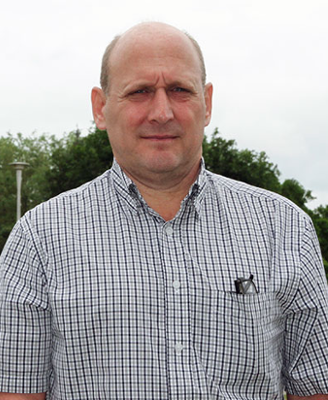With a decision-centric perspective, C1 co-generates different types of scenarios with stakeholders, including water supply scenarios, for risk analysis and local and regional problem solving and vulnerability analysis (C2). These scenarios will be derived from or informed my research in Themes A and B and will be used for “stress testing” key components of regional river systems, for example the long-term viability of the 1969 Master Agreement on Apportionment of the Saskatchewan River and the viability of fish and other wildlife species in the Cumberland Delta. In parallel, we will generate scenarios for water policy and water demand, including planned or considered infrastructure developments (e.g. water diversions, irrigation expansion and new reservoirs) and alternative water allocation systems.. Results will reveal how vulnerable key governance agreements, development strategies, and ecosystem services are to uncertainties about the climate and policy decisions. The resulting models and scenarios are “boundary objects,” representing the work and ideas of scientists and user groups.
Year 1: Refined scenario runs for the Nelson-Churchill, including additional scenarios defined for the Assiniboine/Red River/Winnipeg systems.
Year 2-3: Background research and scenario development for the Okanagan, Saint John’s and Great Lakes regions pending successful partnerships with collaborators in these areas. Environmental Scan to build a list of policy options (green infrastructure, hard infrastructure, water markets, co-operation-based approaches, insurance, environmental rights/flow management, etc.) and model representations.
Progress so far:
(i) An environmental scan of stakeholder dialogue in the Nelson-Churchill system is complete, resulting in a list of plausible policy options for modelling;
(ii) Six agriculture-centric scenarios for irrigation development and crop mix are developed;
(iii) Preliminary climate change-flow time series for use in modelling scenarios are generated, including a reconstructed tree-ring-based weekly flow time series from 1600 to 2001 and the ongoing generation of flow scenarios through a stochastic weather generator and hydrological modelling.
Lead:
 |
Patricia GoberProfessor Emeritus |
Co-Leads:
 |
Saman RazaviAssistant Professor
|
|
 |
Howard WheaterProfessor |
|
 |
John PomeroyProfessor |
|
 |
Yanping LiAssistant Professor |
|
 |
Karl Erich-LindenschmidtAssociate Professor |
|
 |
Al PietroniroExecutive Director |
Highly Qualified Personnel:
Hayley CarlsonProfessional Research Associate |
Research: Water policy, user engagement, knowledge mobilization |
|
Leila EamenPhD |
Research: Water resource management |
|
Kasra KeshavarzMasters Student |
Research: Water resource modelling |
|
Syed Mustakim Ali ShahMasters Student |
Research: Water management modelling |
The team interfaced with stakeholders during annual meetings in Year 1 and Year 2 and with collaborators of the WPs in Theme B. During Year 2, the research team interviewed key stakeholders across Canada involved in various aspects of water management and governance, including representatives from the Cities of Calgary and Fredericton, the Mackenzie River Basin Board and Prairie Provinces Water Board, and Manitoba Infrastructure, among others.
Selected Publications
-
Das, A., Reed, M. and Lindenschmidt, K.-E. (2018), Sustainable ice-jam flood management for socio-economic and socio-ecological systems. Water, 10: 135 http://dx.doi.org/10.3390/w10020135
-
Wada, Y., Bierkens, M. F.P., de Roo, A., Dirmeyer, P., Famligietti, J., Hanasaki, N., Konar, M., Liu, J., Schmied, H.M., Oki, T., Pokhrel, Y., Sivaplan, M., Troy, T., van Dijk, A., van Emmerik, T., Van Huijgevoort, M., Van Lanen, H., Vorosmarty, C., Wanders, N., Wheater, H. (2017), Human-water interface in hydrological modelling: current status and future directions. Hydrol. Earth Syst. Sci., 21, 4169-4193, doi: 10.5194/hess-21-4169-2017
Books and Book Chapters
- Carlson H, Pietroniro A., Gober P, et al., Natural Resources Canada 2020 publication: Canada in a Changing Climate: National Issues. Our Environment: Water Resources Chapter (in progress).







